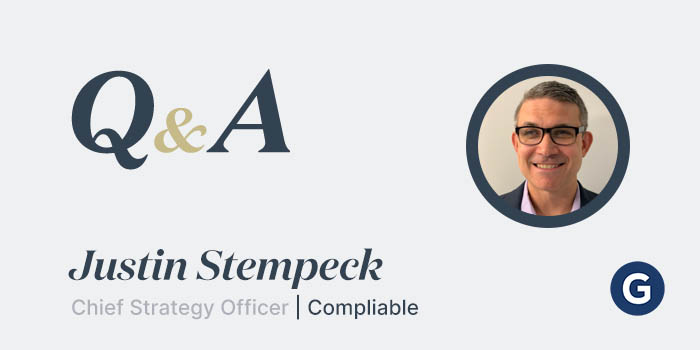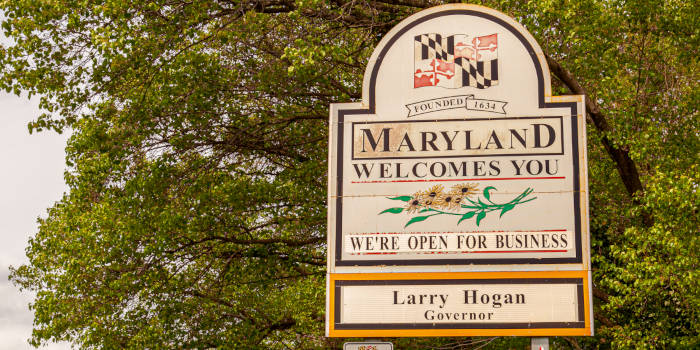Compliable’s Justin Stempeck: “Ohio Sets Regulatory Example for Operators to Follow”
Online sports betting launched in Ohio on January 1, 2023, making it the latest US state to regulate the sector

The excitement around the opening of the online market was quickly overshadowed for some however, as the Ohio Casino Control Commission (OCCC) issued operators with total fines of over $1 million in the first five days. Related to various advertising issues, such as affiliate marketing, the sanctions are some of the toughest seen in the US market. We spoke to Justin Stempeck, Chief Strategy Officer at Compliable, for his insight into the developments in Ohio and what this could mean nationwide.
Q: The Ohio regulator recently issued large fines to a number of operators, just days after the market opened up. It has so far been the most aggressive US regulator in terms of sanctions. What does this move the signal to you as more states open up and markets mature?
A: The sanctions issued by Ohio were all related to responsible gambling (RG) violations by operators. Newer regulators have taken a very firm stance on RG protections and that can be viewed in the approach of not only Ohio but Massachusetts and the recent disclosures by Maine on its proposal around advertising restrictions. As the US sports betting market matures, the approach of states like these will become more common rather than the outlier as they are currently viewed. We saw a similar trajectory in the UK, in terms of increased regulation in response to excessive advertising and we expect this will also be the case in the US.
Q: Do you think other regulators will become more aggressive as a result of Ohio’s action?
A: I hesitate to say ‘aggressive’ but I think that regulators will take a closer look at their responsible gambling and advertising prohibitions as the industry matures. There is often a lot of leniency in the rush to launch a new jurisdiction but after the dust settles and regulators catch their breath, they will review their mission and responsible gaming is a top concern across the country. Ohio has shown many that strict policing of their regulations gets attention and likely encourages operators to follow all of the rules from day one.
Q: Affiliate marketing has been central to the Ohio regulator’s concerns and the state does currently not require affiliates to get a licence. Do you think forcing affiliates to be licensed is the way forward or what else can be done to ensure compliance in that space?
A: Ohio seemed to spend a significant amount of time crafting its regulations and evaluating who was going to be licensed. The state made a deliberate decision to not require the licensure of affiliate marketers and explained as much to the public. The failure to follow advertising restrictions and operators not being able to police their own affiliates endangers this model. If the operators will not keep their marketing partners in line, the regulator has suggested licensing of the affiliates could be the next step. At the end of the day, the regulator needs to hold someone accountable for missteps in advertising and while regulators have broad powers, they are only applicable to licensees. As affiliate marketers are not currently licensed, the operators are the only ones the regulators can punish and that will certainly communicate down to how the affiliates operate.
Q: Do you think we will soon see an overhaul around responsible gambling in the US, maybe even some industry self-regulation or nationwide guidance?
A: I would call it less of an overhaul and more of a renewed focus on the responsible gambling space. In many ways, the US is similar to the UK ten years ago in terms of advertising. US states can use the lessons learned in the UK to avoid problems with advertising and several new jurisdictions have taken that strategy from the beginning. Missteps like the ones in Ohio really undermine any suggestion that the industry could be an effective self-regulator. Newer states that are much stricter in this area will no doubt have a ripple effect in other jurisdictions as well, particularly when it comes to advertising practices that are often at the national level.
Although Fiona doesn't have a long-spanning background within the gambling industry, she is an incredibly skilled journalist who has built a strong interest in the constantly growing iGaming network. The team at GamblingNews.com is glad to have her on our roster to help deliver the best stories as soon as they hit. Aside from writing, she loves to dabble in online casino games such as slots and roulette, both for her own enjoyment and also as research to better improve her understanding of the industry.















